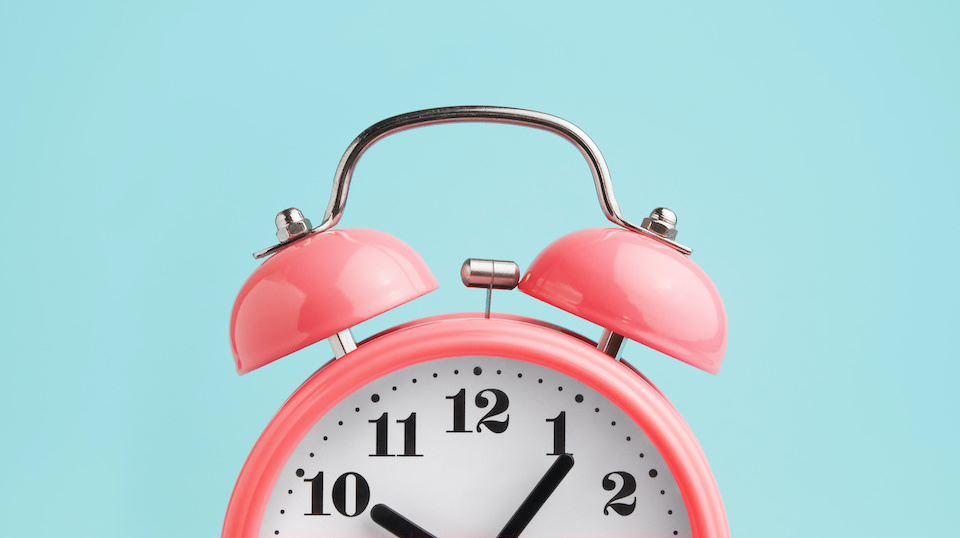Beep, beep beep…Groan…Roll over and hit the snooze button. Sound familiar? For most of us, waking up on time requires the use of an alarm clock, which makes them a vital fixture in many bedrooms. However, this essential tool is also frequently the most hated, since its unpleasant sound interrupts our dreams and brings us rudely back to reality, making us feel groggy and reluctant to start the day.
But new research hints that mornings don’t have to be this way. Scientists now know that sound has a significant effect on a person’s “waking-up” routine. If you wake up feeling dazed in the morning, it may be due to the sound of your alarm.
Your alarm clock could be ruining your mornings
While most of us wake up to the blare of an alarm clock or radio, these sudden and disruptive sounds are far from the latest sleep technology. The problem is, they can wake you during rapid eye movement sleep (REM), the deepest phase where you experience vivid dreaming. When someone is woken during REM sleep, they could face sleep inertia, a psychological state where there are still high levels of sleep hormones in their system. This creates that typical sleepy, groggy feeling that we tend to wrestle with in the morning.
In addition, that violent wakeup could put you in a foul mood for the rest of your day. This is because sudden sounds tend to trigger a series of instinctual reactions, such as an increased heart rate and a rise in blood pressure. No wonder we feel grumpy after we are put directly into “fight or flight” mode when we’ve just woken up.
While an unpleasant wake-up can be just that, it can also have more significant implications. For example, those who need to perform at their peak soon after waking, such as shift workers and emergency first responders, could experience lower levels of mental and physical performance for as long as four hours after waking. Something that could lead to costly mistakes or dangerous accidents.
Therefore, creating a more pleasant wake-up experience isn’t just a nice thought…it’s a necessity.
New study says you should wake up to this sound
A recent study looked at how various alarm sounds could affect the morning wakeup experience and grogginess in the hours following. Researchers from the Royal Melbourne Institute of Technology surveyed 50 people, ages 18 to 60, about their sleep habits and the sounds that they like to wake up to.
Most participants reported using their phone for an alarm clock, using a variety of sounds including alarm tones, songs, and nature sounds. The researchers were most interested in comparing “unmelodic” alarms, such as beeping or repetitive sounds, to “melodic” ones, such as pop songs. The participants provided details on what type of alarm sound they prefer and filled out a questionnaire to gauge how they felt and functioned after waking up.
Interestingly, the study found that those who woke up to a melodic song had lower levels of daytime grogginess than those who chose a beeping sound. Pop songs such as the Beach Boys’ ‘Good Vibrations’ or ‘Close To Me’ by The Cure were found to be among the more effective and enjoyable wake-up tunes. If more people adopt a positive morning routine, we could reduce the symptoms of grogginess and create safer conditions on our roads, and in our homes and workplaces.
Other ways to create a happier morning
Beyond curating your alarm clock noise, there are a few habits that have been shown to help ease you into the day. For example, regular sleep hours, light exposure, and consistent morning rituals can be helpful.
If you’ve never heard of a light alarm clock – also known as a sunrise alarm clock, it’s time you get in the know. Instead of rousing you with sound, they rely on light to wake you up gradually over about 30 minutes. Typically, the light slowly increases in intensity, shifting from red through orange and yellow, and finally, bright light to imitate the rise of the sun. If you’re somehow still sleeping when the room is fully lit, it uses sound as a last resort. This is intended to prevent that sudden jolt awake, which wrenches you out of your dreams and leaves your heart pounding and head groggy.
Going to bed and getting up at the same time every day, getting 15 to 20 minutes of sunlight in the morning, and going through the same habits as you get ready for the day are effective ways to make your transition back to reality easier. With a few small changes, you can enjoy a happier morning, every morning.
-The UpWellness Team









